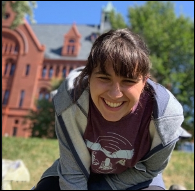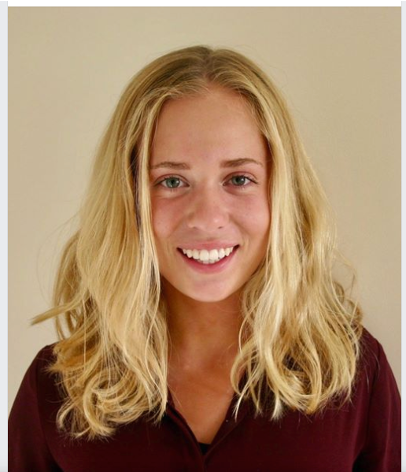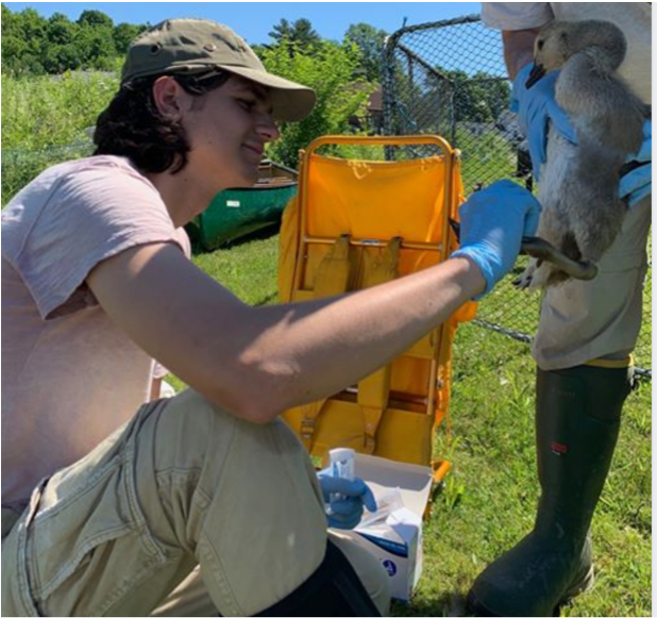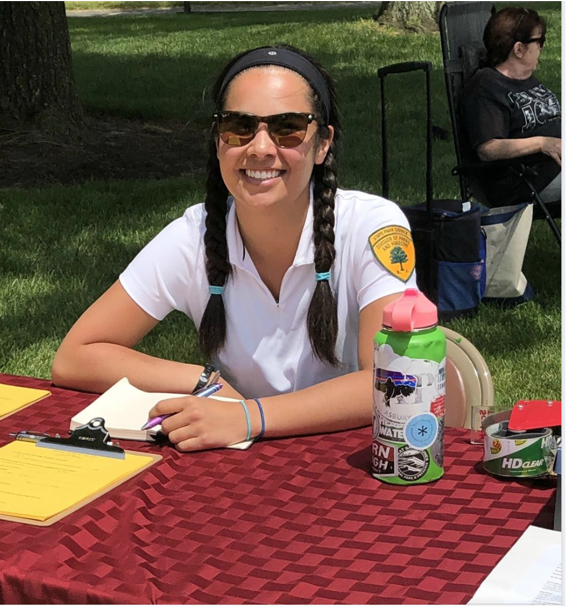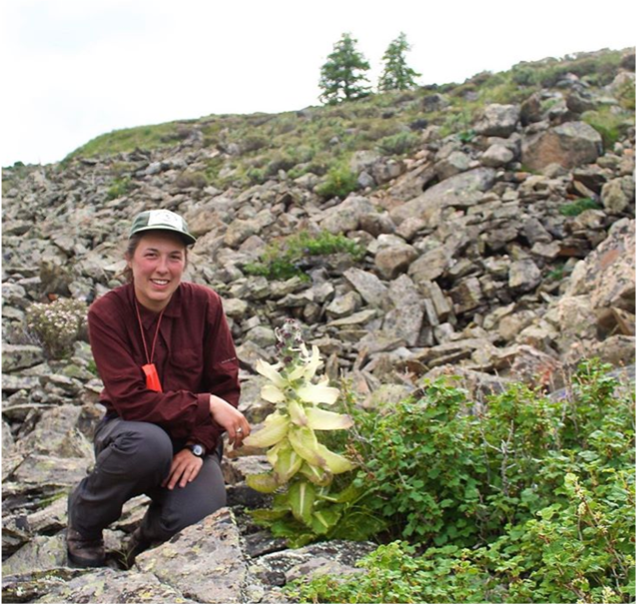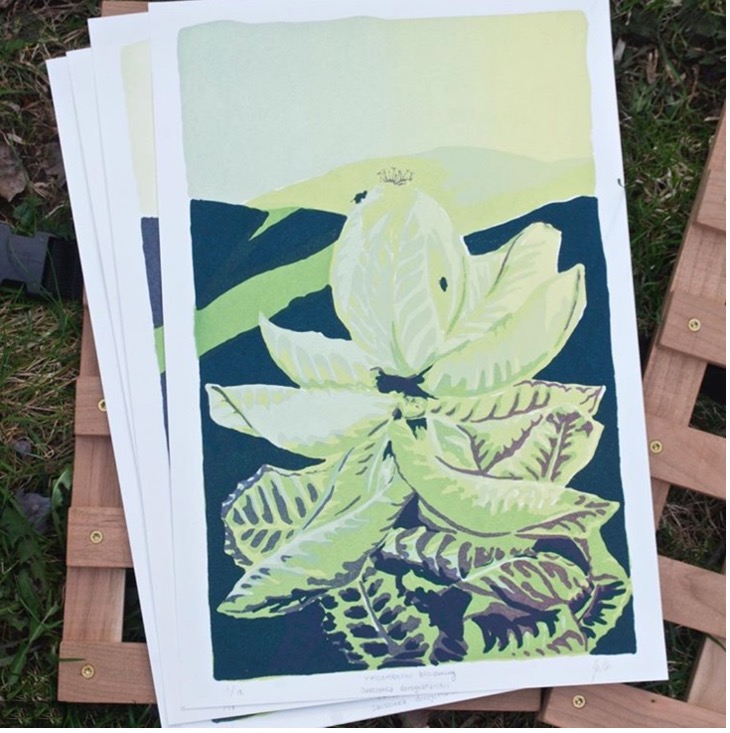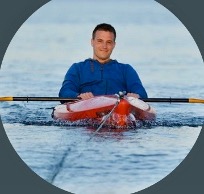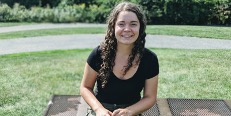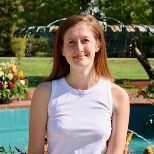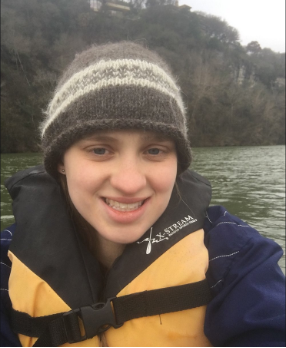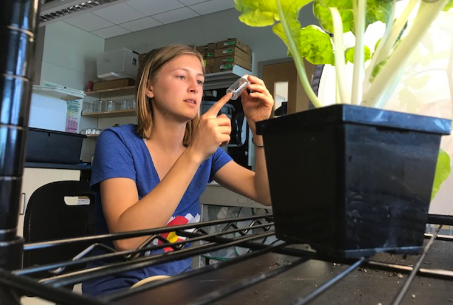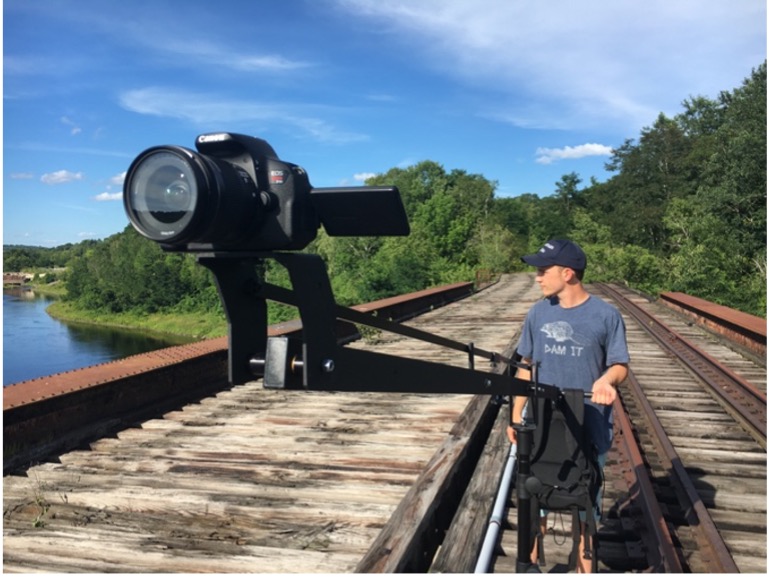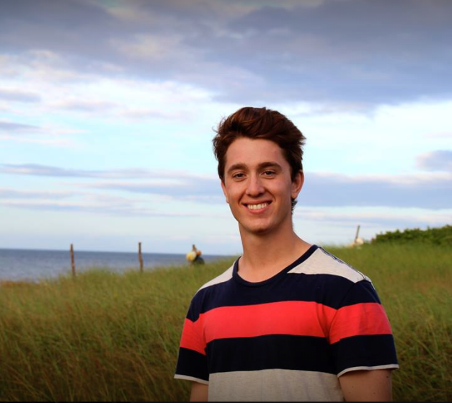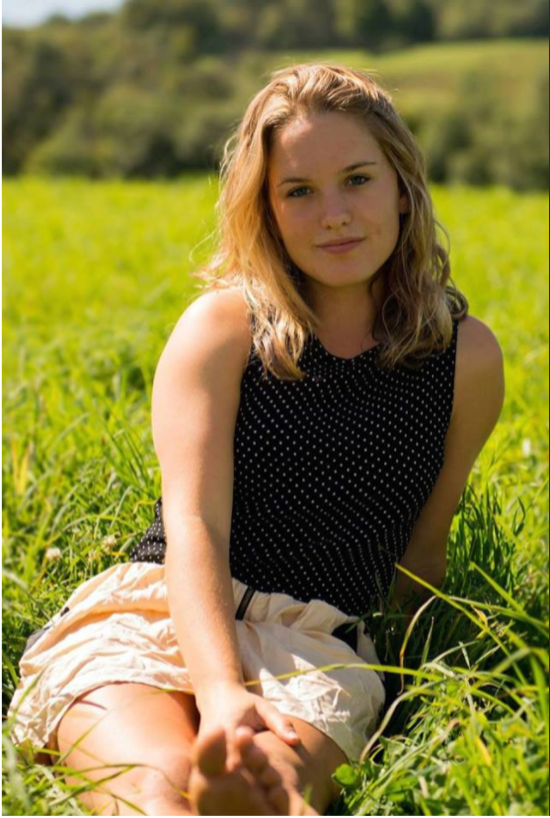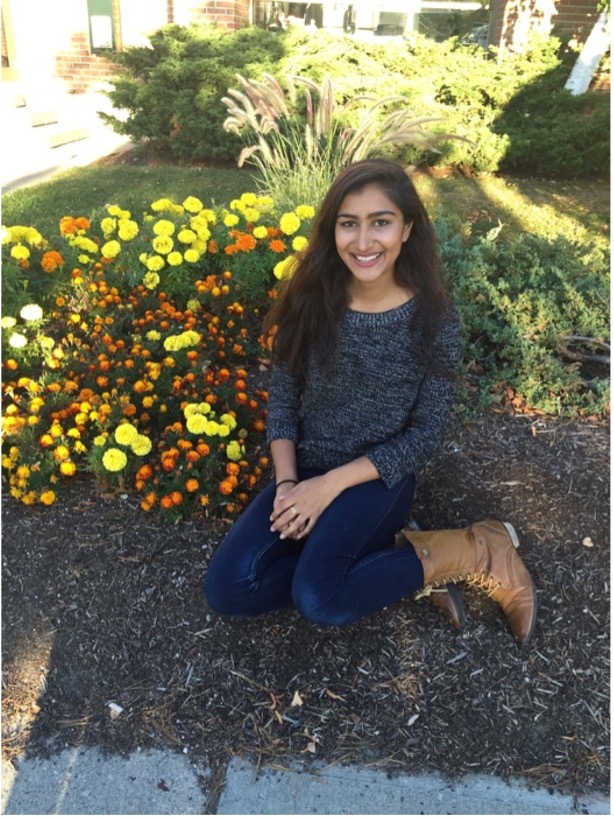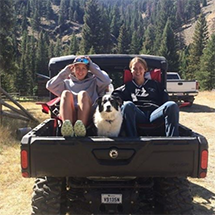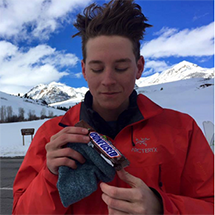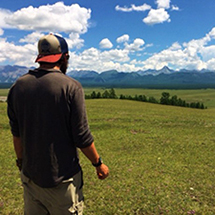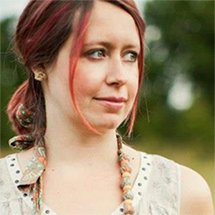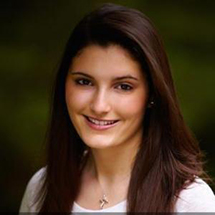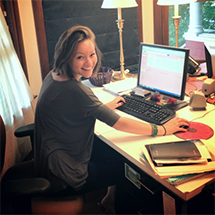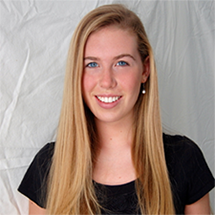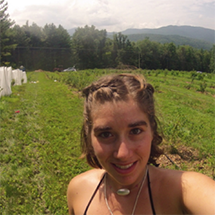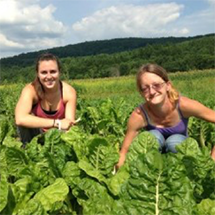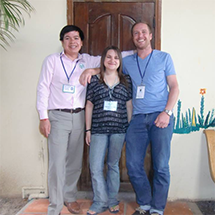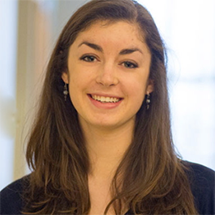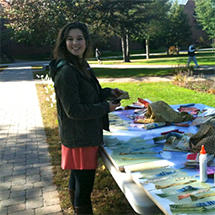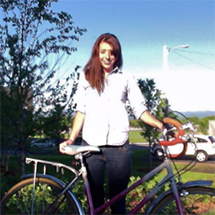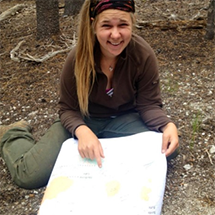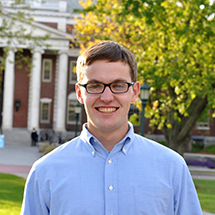
Nate '16
Public Health (Individually Designed Major)
Project Title: Vaccine Coverage in Vermont and the Chittenden County Schools: Effect of Exemptions and Provisional Acceptance on Vaccine Coverage and Health Outcomes
Faculty Mentors: Beverly Wemple, Associate Professor of the Department of Geography & Jeanne Shea, Associate Professor of the Department of Anthropology
Community Partner: Vermont Health Department
Numerous vaccine preventable diseases are spread through close proximity and in densely populated situations, like schools. Numerous factors affect the rate of transmission of vaccine preventable diseases, however, it is widely accepted that the most important factor in preventing outbreaks of vaccine preventable disease is a high vaccine rate. The purpose of Nate’s research project this summer was to identify low or high vaccination rate clusters in Vermont schools (kindergarten through 12th grade) using ArcGIS to identify “hotspots” where the Vermont Health Department might use more effective strategies to distribute vaccines or other educational resources.
Nate’s career goal is to become a public health researcher. By participating in this research project he developed a number of skills: an ability to enter a community and develop relationships with partnering organizations and individuals in order to achieve a greater goal; how to develop understandings among a variety of constituents; and how to structure a scientific study, gather data, and communicate findings. Finally, this research contributed to the essential building blocks that will lead to his Honors Thesis, by identifying the location of schools where he will perform interviews that will act as case studies to exemplify the spatial data provided by his GIS mapping.
Nate is currently on a Fulbright Fellowship in Norway (fall, 2017).
Rachel '16
Statistics
Project Title: Development of a "Traffic Enforcement Scorecard" for Walk and Bike Safety in Vermont
Faculty Mentor: Sheila Weaver, Senior Lecturer in the Department of Mathematics & Statistics
Community Partner: Local Motion (Burlington, Vermont)
Analyzing traffic citations may bear significantly upon the safety for people walking or biking in urban environments, and creating safer streets for everyone is Local Motion’s mission. They needed a means by which to accomplish the analysis and in walked Rachel. As a third year stats major, Rachel had the necessary skills to advance the mission of her community partner and find a practical means to exercise her math legs.
One of the key obstacles facing public safety oriented organizations is the relatively low priority that police departments place on walkers and bikers. Research in major metropolitan areas has shown that one way to raise the awareness of public officials to the dangers of their non-motorized citizenry is to provide scorecards for departments based on the number of citations they write for traffic infractions that are more likely to endanger people on foot or bike. By looking for statistically significant trends in tickets for jaywalking (pedestrian), riding through a stop sign (cyclist), and failing to signal (driver), the project hoped to suggest how effective local laws have been at maintaining or increasing safety for everyone sharing the road.
What Rachel found was that the data are even more complicated than her initial efforts could reveal, but undeterred, she has decided to continue her work into the fall to build a clearer picture of local and state laws. In addition she will be creating a series of visual aids (i.e., graphs and plots) to be used by her community partner in their efforts to create a more healthy and safe environment for everyone on Burlington’s streets.
Alyssa '17
Elementary Education
Project Title: The Benefits of a Mindful Learning Program on Elementary School Students and Teachers: A Case Study on the Center for Mindful Learning Initiative
Faculty Mentor: Shana Haines, Assistant Professor in the College of Education and Social Services
Community Partner: Center for Mindful Learning (Johnson, Vermont)
The study that Alyssa worked on took place at an elementary school in a high-needs, increasingly diverse school district in Winooski, Vermont. Three years ago this school district, with a generous grant from the Vermont Community Foundation, was able to pilot a mindfulness curriculum brought about by the Center for Mindful Learning. The current study sought to explore the benefits of this mindfulness program on students, teachers, and community members in the district.
During May and June, Alyssa worked side-by-side with seven UVM faculty members, participated in approximately twenty-five classroom observations, and interviewed teachers and staff at the nearby elementary school. Working with skilled professors from her college was an incredible experience in collaboration. When it came to data collection, her faculty mentor modeled professional interview procedures and protocols and then allowed her to conduct her own interviews. By being on a large research team Alyssa was able to learn the importance of communication between the researchers, the schools, and the community partner. She learned how to stay extremely organized during the entire research process, and took responsibility for maintaining the files where the team housed audio recordings, notes, cover sheets, and relevant literature. By working closely with her professors, Alyssa elevated her own learning experience and ultimately the results that she could have obtained had she been alone.
This summer benefitted by her future career plans as a general or special educator. Alyssa found it extremely beneficial to be able to spend an extended amount of time interviewing and observing classes at a school district similar demographically to that of a school that she hopes to work in. The integration of mindfulness into classrooms (particularly with elementary aged students) is on the rise; therefore, having the opportunity to see it at work in classrooms, and to examine both the benefits and difficulties of its use will be enormously beneficial when it is time for her to have a classroom of her own.
Charlie '16
Environmental Studies (concentration: Sustainability Studies)
Project Title: Using Messaging Techniques to Understand Perceptions of Act 148 and Composting
Faculty Mentor: Brendan Fisher, Associate Professor in the Gund Institute of Ecological Economics
Community Partner: Sustainability Program, City of Burlington, Vermont
Vermont Act 148 (Vermont’s universal recycling and composting law) mandates residents to sort their organic waste from their non-organics in order to divert thousands of tons of methane-producing food waste from going to the landfill. The implications of this law include selling this once-wasted material as a commodity, putting more money in the Vermont economy; decreasing waste sent to the increasingly-shrinking space in Vermont landfills; and, significantly decreasing the state’s greenhouse gas emissions. However, as this law will affect residents in their homes and change daily routines of Vermonters, it faces certain challenges in order for the successful implementation. Inevitably, Vermonters’ attitudes of Act 148 and the practice of composting will be a critical leverage point in a smooth transition into a state of universal composting.
Charlie spent time developing and carrying out an experiment which sought to use a number of behavioral economics techniques in order to measure Burlington residents’ perceptions and attitudes of residential composting. Specifically he manipulated the text on an information sheet about the residential composting components of Act 148 into four different groups: the control group was neutrally framed, as information appears on the Chittenden Solid Waste District website; the negative group received information framed with an emphasis on consequences of not complying; the Vermont group received neutral information that also primed the social identity of Vermonters as “leaders of positive innovating change”; and the Vermont positive group had information emphasizing the benefits of complying and priming their Vermont social identity. The information sheets were mailed to 4000 residents of Burlington with a survey to measure their attitudes.
The exciting and unexpected results that Charlie is still analyzing with his faculty mentor, Dr. Brendan Fisher, contradict the expectation that the Vermont and the Vermont positive groups would have more positive attitudes about Act 148 and composting. The initial findings suggest that these two groups had significantly more negative perceptions and attitudes of the new law. Overall this experience, made possible by the receipt of his Simon Fellowship, taught Charlie about the necessary steps to implementing a behavioral science experiment, how to find pose questions and find answers to crucial issues that have direct policy implications for our state. In effect, he learned how to uncover preconceived notions and anecdotal evidence by using research as his tool.
Anna '16
Gender, Sexuality, & Women's Studies
Project Title: Safer Sex Education for Empowerment
Faculty Mentor: Mary Burke, Lecturer in Gender, Sexuality, & Women's Studies and in the Department of Sociology
Community Partner: Living Well, Center for Health and Well Being (University of Vermont)
Part of the mission of Living Well is to create opportunities for accessing information, identifying resources, developing skills for making healthy choices. A vital area that the program wanted to develop was a sustainable peer education program. Anna’s past experience involving peer to peer engagement and her desire to have a positive and lasting impact made her the perfect candidate to help the Center.
Using a model of positive sexual health education to create an empowered student population is not a summer’s long project, but both Anna and her partner understood that the research she performed was intended to lay the groundwork for a larger, more comprehensive approach to improving student concepts of sex, sexuality, healthy relationships, and personal health. So Anna, in close collaboration with a nurse practitioner, collected a large amount of recent research on sexual education programming. She designed lesson plans for a student-led mentoring program, one that will be easily managed by full-time staff in the Center as the student population grows, graduates, and moves away. In Anna’s words, “my generation of young adults has had minimal exposure to safer sex education…In order to break the silence around sexual violence and stigmatized sexualities, sexual wellness must be approached from a holistic health perspective.” With her research and lesson planning complete, Anna is looking forward to implementing the peer-led program this coming year.
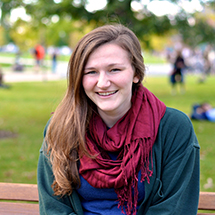
Erika '16
Geography
Project Title: Mapping American Childhoods: Early 20th Century Vermont
Faculty Mentor: Meghan Cope, Professor of the Department of Geography
Community Partner: Center for Digital Initiatives, UVM Libraries
Building off faculty interest in the lives of children in urban environments and the sociological and geographical information stored in raw form (not transcribed much less digitized) in the Special Collections of the Bailey/Howe Library at the University of Vermont, Erika conceived a project that would allow for easy, public access to these rich resources. The records in question referenced the abandonment and placement of children in the late 19th and early 20th centuries from an orphanage in Burlington. This vastly under-studied population –poor and socially marginalized children –and their experiences in a turn-of-the-century city, allow for the examination of the city’s practices and public discourses surrounding the care of poor children.
Throughout the digital mapping project, Erika learned a tremendous amount about managing large volumes of archival documents and data. The bulk of this project involved transcribing demographic, geographic, and general descriptive information form the Home for Destitute Children admission records, in effect developing a database for further analysis. Once created, she was able to perform ethnographic coding and geocoding to create a searchable database for the public. The maps that were developed demonstrate significant trends of placement and contribution for towns in Vermont. By focusing on several children’s narratives, Erika was also able to give voice to a largely marginalized population.
The most significant lessons she learned involved handling the inevitable gaps in the data, finding effective approaches to dealing with the gaps, and managing large volumes of data. The best way to solve issues surrounding incorrect or missing information proved to teach the lessons of fundamental archival research –find other supporting primary documents to enhance and support one’s analysis. Regardless of her future graduate school interests, Erika will be able to apply these essential skills.

